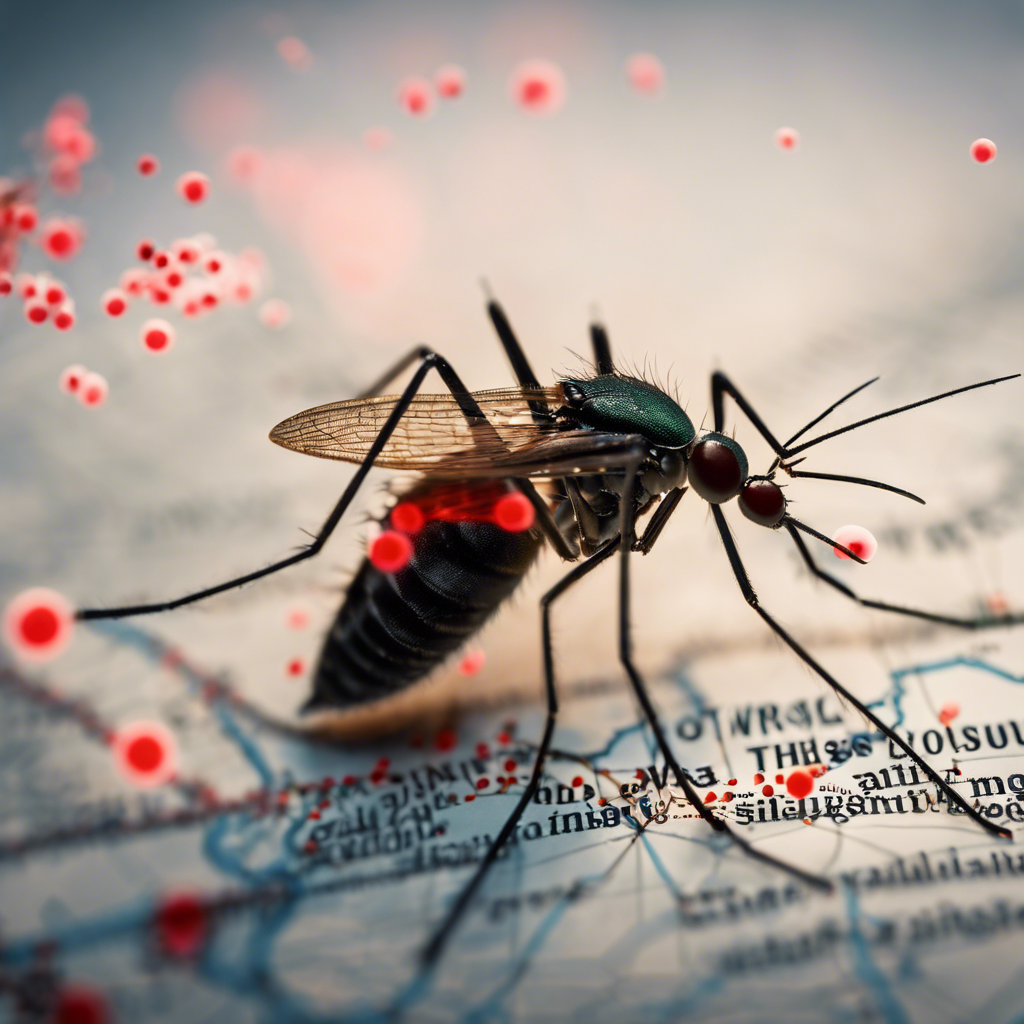Discover the prevalent mosquito-borne diseases in Tulsa. Diseases like West Nile Virus and St. Louis encephalitis are spread by infected mosquito bites. Symptoms vary from mild flu-like to severe neurological issues. Protect yourself by using repellents, wearing protective clothing, and removing standing water. Be cautious during outbreaks to prevent illness. Take action to safeguard your health and well-being against potential risks. Explore further to gain in-depth knowledge on symptoms, risks, prevention strategies, and mosquito control measures to stay informed and protected.
Key Takeaways
- West Nile Virus, St. Louis encephalitis, and La Crosse encephalitis are significant mosquito-borne diseases in Tulsa.
- Symptoms range from mild flu-like to severe neurological complications.
- Prevention measures include using repellents, wearing protective clothing, and eliminating standing water.
- Outbreaks of West Nile Virus are common in Tulsa due to high temperatures and drought.
- High-risk groups include individuals over 50 and pregnant women; seek medical attention for symptoms.
Overview of Mosquito-Borne Diseases
When considering the prevalence of mosquito-borne diseases in Tulsa, it’s essential to understand the various types of illnesses transmitted by these insects. Mosquito-borne diseases such as West Nile Virus, St. Louis encephalitis, and La Crosse encephalitis are significant concerns in Tulsa. These diseases are primarily transmitted through infected mosquito bites.
Symptoms can vary from mild flu-like symptoms such as fever, headache, and body aches to more severe neurological complications. Prevention measures play an important role in reducing the risk of contracting these illnesses. Using insect repellents, wearing protective clothing, and eliminating standing water are key preventive actions.
Mosquito-borne diseases pose a higher risk during peak mosquito activity times, especially from July to October in Tulsa. Being aware of these diseases and taking necessary precautions can greatly reduce the chances of mosquito-borne illnesses affecting you or your loved ones in Tulsa.
Common Mosquito-Borne Diseases in Tulsa
Wondering what’re the common mosquito-borne diseases prevalent in Tulsa? One of the primary concerns is the West Nile Virus, which sees outbreaks in Tulsa due to high summer temperatures and drought conditions.
Symptoms of West Nile Virus can range from fever, headache, body aches, and rash to severe cases that may lead to meningitis or neurological disease. To prevent contracting the West Nile Virus, it’s essential to take precautionary measures such as using insect repellents containing DEET, wearing long-sleeved clothing, and eliminating standing water to hinder mosquito breeding.
Individuals over 50 years old are at a higher risk of severe illness from West Nile Virus, with pregnant women also facing potential transmission to their unborn child. The virus is transmitted to mosquitoes through infected birds, with birds and horses being the most commonly affected animals in the region.
Stay informed and take necessary steps to protect yourself from this prevalent mosquito-borne disease in Tulsa.
Symptoms and Risks
To understand the potential risks associated with mosquito-borne diseases in Tulsa, it’s important to recognize the common symptoms that individuals may experience. Symptoms of these diseases can manifest as fever, headache, body aches, nausea, vomiting, and rash.
In severe cases, individuals may experience convulsions, coma, paralysis, joint pain, or conjunctivitis. Elderly individuals in Tulsa are at a higher risk of developing severe illness from mosquito-borne diseases. Specifically, diseases like West Nile virus can lead to neurological complications in severe cases, affecting the brain and spinal cord.
Additionally, pregnant women in Tulsa need to be cautious as they can potentially transmit these diseases to their unborn children. It’s vital to seek medical attention if you experience any of these symptoms, especially if you fall into the high-risk categories, to prevent complications and guarantee proper treatment.
Stay informed and protect yourself from the risks associated with mosquito-borne diseases in Tulsa.
Prevention Strategies
To effectively combat mosquito-borne diseases in Tulsa, implementing proactive prevention strategies is essential. By following these key steps, you can reduce the risk of mosquito bites and protect yourself from potential illnesses:
- Use Larvicides: Employ larvicides like BTI to control mosquito populations and prevent breeding in standing water.
- Clean Gutters: Regularly clean gutters and remove debris to eliminate potential mosquito breeding sites around your home.
- Apply Insect Repellents: When outdoors, use insect repellents containing DEET, Picaridin, or oil of lemon eucalyptus to deter mosquitoes.
- Wear Protective Clothing: Cover your skin with long-sleeved shirts and pants to reduce exposure to mosquito bites.
Mosquito Control Measures
Implementing effective mosquito control measures is essential in mitigating the spread of mosquito-borne diseases in Tulsa. To reduce mosquito populations, larvicides such as BTI and mosquito-eating fish are commonly used. It’s vital to maintain clean gutters and remove debris regularly to eliminate potential mosquito breeding sites around your home.
For personal protection against mosquitoes, using insect repellents containing DEET, Picaridin, or oil of lemon eucalyptus is highly recommended. Additionally, wearing long-sleeved shirts and pants when outdoors can help reduce mosquito bites. Taking precautions during the early evening to early morning hours, when mosquitoes are most active, can also minimize your exposure to these disease-carrying insects.
Importance of Public Awareness
Public awareness plays an essential role in preventing and controlling mosquito-borne diseases in Tulsa. Here are four key ways public awareness can make a difference:
- Educating on Transmission: Understanding how mosquito-borne diseases are spread can empower individuals to take necessary precautions.
- Promoting Preventive Measures: Awareness campaigns can emphasize the importance of protective clothing and using insect repellents to reduce the risk of bites.
- Enhancing Community Updates: Regular updates and engagement with the community can lead to quicker public health responses during outbreaks.
- Empowering with Knowledge: Increasing awareness about eliminating breeding sites for mosquitoes can have a significant impact on the control and prevention of these diseases.
Conclusion and Call to Action
Take charge of your health by staying informed and proactive about mosquito-borne diseases in Tulsa.
To safeguard yourself and your community, implement preventive measures such as using insect repellents, wearing protective clothing, and eliminating standing water where mosquitoes breed.
Understanding the symptoms and risks associated with mosquito-borne illnesses is vital; seek prompt medical attention if needed.
Adhering to health department guidelines and recommendations is essential for controlling mosquito populations and reducing disease transmission.
Additionally, consider vaccinating at-risk animals like horses to prevent diseases like West Nile encephalitis and contribute to overall disease prevention efforts.
By taking these steps, you not only protect yourself but also help create a safer environment for everyone in Tulsa.
Stay vigilant, follow preventive practices, and support community initiatives to combat mosquito-borne diseases effectively.
Your proactive approach can make a significant difference in mitigating the risks associated with these illnesses.
Frequently Asked Questions
What Is the Most Common Disease Transmitted by Mosquitoes?
The most common disease transmitted by mosquitoes is West Nile Virus. It is important to protect yourself from mosquito bites to prevent this illness. Remember to use insect repellent and wear protective clothing outdoors to stay safe.
What Is the West Nile Virus in Oklahoma?
In Oklahoma, West Nile Virus is a mosquito-borne disease. You can protect yourself by using repellent, eliminating standing water, and wearing protective clothing. The virus spreads through mosquito bites, especially in warm weather.
What Are the Risk Factors of Mosquito-Borne Diseases?
When it comes to the risk factors of mosquito-borne diseases, prevention methods are essential. Outdoor activities, environmental factors, and disease transmission all play a role. Stay vigilant with personal protection to minimize health implications and spread public awareness.
What Are the Symptoms of the New Mosquito Virus?
To understand the symptoms of the new mosquito virus, watch out for fever, rash, joint pain, conjunctivitis, and in severe cases, paralysis, coma, convulsions. Seek medical attention if experiencing these signs for early detection and treatment.





